Last Updated on: 24th July 2025, 05:55 am
Have you ever wondered whether you need to notify HMRC about the interest you earn from your savings? With changes in income tax thresholds, personal savings allowances, and increasing interest rates, many UK savers are asking just that in 2025.
Savings accounts, bonds, and even certain investments may generate interest income and while much of it can be tax-free, it’s not always clear when HMRC needs to know.
Whether you’re a basic-rate taxpayer earning a modest return, or you’re receiving substantial income from various accounts, understanding your reporting obligations is essential.
Failing to notify HMRC when required could result in penalties, but overreporting could lead to unnecessary paperwork. This guide breaks down the rules surrounding savings interest, including thresholds, automatic tax deductions, and how to claim back overpaid tax.
We’ll walk you through whether or not you need to file a tax return, how tax codes are updated, and how interest is handled for joint or children’s accounts in the UK.
What Is HMRC’s Role in Taxing Your Savings Interest?
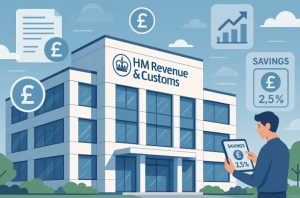
HM Revenue and Customs (HMRC) is responsible for ensuring that UK taxpayers pay the right amount of tax, including any due on savings interest. But in most cases, individuals do not need to manually notify HMRC, your bank or building society typically does it for you.
Financial institutions report your interest earnings directly to HMRC at the end of each tax year. Based on this data, HMRC may adjust your tax code to reflect the income and collect any owed tax automatically. This applies primarily to people who are employed or receive pensions.
However, you must notify HMRC yourself if:
- You’re self-employed and complete a Self Assessment
- Your interest exceeds your tax-free allowances
- You earn over £10,000 from savings and investments combined
- You’re not employed, not on a pension, and don’t complete Self Assessment
So, while HMRC handles most of the process automatically, you’re still legally responsible for checking if you need to take action.
What Is the Personal Savings Allowance and How Does It Work?
The Personal Savings Allowance (PSA) allows you to earn a certain amount of interest tax-free based on your income tax band. As of 2025, it remains one of the simplest ways to reduce tax liability on your savings.
How Much Tax-free Interest Can You Earn in 2025?
In the 2025 tax year, your PSA depends on your income tax band:
| Taxpayer Type | Tax Rate | Personal Savings Allowance |
|---|---|---|
| Basic Rate Taxpayer | 20% | Up to £1,000 tax-free |
| Higher Rate Taxpayer | 40% | Up to £500 tax-free |
| Additional Rate Taxpayer | 45% | £0 allowance |
This interest may come from:
- Standard savings and current accounts
- Credit union and building society accounts
- Peer-to-peer lending
- Investment funds
- Bonds and insurance contracts
The PSA does not apply to interest earned in tax-free wrappers like ISAs, which are already exempt. HMRC receives interest data directly from financial institutions and will deduct tax via your code if you exceed the allowance.
Be mindful that exceeding this limit requires accurate self-reporting or accepting adjustments to your tax code.
Who Qualifies for the Starting Rate for Savings?
In addition to the PSA, you may be eligible for the starting rate for savings, which allows up to £5,000 in additional tax-free interest, but only if your other income is low.
To qualify:
- Your non-savings income (wages, pension) must be under £17,570
- Every £1 above your Personal Allowance of £12,570 reduces the £5,000 starting rate by £1
For example:
- You earn £16,000 in wages.
- Subtract your £12,570 Personal Allowance → £3,430.
- Your starting savings rate = £5,000 – £3,430 = £1,570.
- If you earned £200 in interest, it would be tax-free under this rate.
Only one starting rate can be used per tax year. This benefit is often overlooked but can be crucial for part-time workers, pensioners, or those with modest income levels.
What Happens if Your Income Exceeds the Allowance?
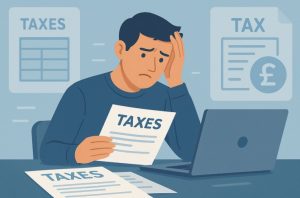
If you exceed either the Personal Savings Allowance or the starting savings rate, the excess interest becomes taxable at your normal income tax rate.
Here’s how HMRC handles this:
- For employed or pensioned individuals, tax is collected via your PAYE tax code.
- For self-employed or high earners, you must report via Self Assessment.
Key points:
- You don’t pay tax on ISAs even if you exceed your PSA.
- HMRC uses previous year’s data to estimate your upcoming savings interest.
- If you underpay or overpay, they’ll issue a letter for correction.
Always keep records of:
- Annual interest statements from banks
- Details of any investments, bonds, or other taxable savings
- Any letters from HMRC updating your tax code
This ensures you’re not caught off guard if your tax-free allowances are exceeded.
Even if you cross the threshold, knowing how HMRC adjusts for the overage keeps you in control. Being proactive prevents underpayment penalties and simplifies tax season.
Do You Need to File a Tax Return for Savings Interest?
For most UK residents, savings interest doesn’t require a tax return. But some circumstances do demand reporting to HMRC directly.
When is a Self Assessment Tax Return Required?
You must file a Self Assessment tax return if:
- Your savings and investment income exceeds £10,000 gross
- You’re self-employed and earning interest
- You have foreign savings or income from trusts
- HMRC sends you a notice to file
Situations that don’t require a return include:
- Your interest is within your PSA and reported automatically
- You are employed/pensioned and HMRC adjusts your tax code
- You hold only ISA savings
If required, register for Self Assessment before 5 October following the end of the tax year and file your return by 31 January. Missing deadlines may lead to fines and penalties.
What if Your Savings and Investment Income is Over £10,000?
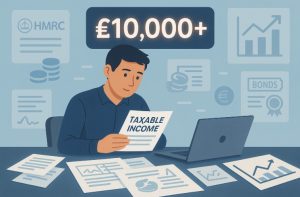
If your combined income from savings, dividends, bonds, and other investments crosses the £10,000 mark:
- Self Assessment is mandatory
- You must declare gross interest, not just what’s paid to you
- Use the “Interest and dividends” section of the return
Don’t forget to include:
- Interest from UK and overseas accounts
- P2P lending, trust income, and PPI compensation interest
- Bonds, insurance savings, and government securities
Failure to report may lead to:
- Penalties
- Loss of eligibility for tax relief
- HMRC investigation into unreported income
Staying informed ensures your finances stay compliant, and that you don’t overpay.
How Is Tax on Savings Interest Paid Automatically?
In many cases, HMRC handles the tax on your savings automatically, without the need for direct action from you. If you’re employed or retired and receive a regular income, HMRC adjusts your tax code based on expected interest earnings.
How Does HMRC Adjust Your Tax Code for Interest Income?
Each year, banks send interest data to HMRC. Based on this:
- HMRC estimates how much interest you’ll earn next year
- Your tax code is adjusted to account for tax owed
- This spreads out payments through PAYE, deducted from wages or pensions
You’ll receive a coding notice explaining changes. If you disagree with the estimate, contact HMRC to correct it. It’s important to verify your bank’s records annually and cross-check them with your tax code to ensure accuracy.
What if You Are Employed or Receive a Pension?
If you’re working or on a pension:
- HMRC will collect owed tax via Pay As You Earn (PAYE)
- You may receive a P800 tax calculation if you’ve overpaid or underpaid
- If you don’t receive this letter by 31 March, you should contact HMRC
The good news? You usually won’t need to do anything manually—unless there’s a major change in your income or savings patterns. But always keep an eye on your PAYE coding notices and savings statements.
What Should You Do If You Exceed Your Allowance?
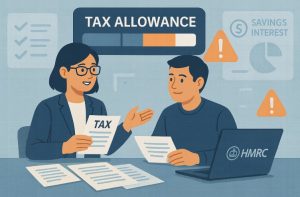
If your savings interest goes over the PSA or starting rate thresholds, HMRC expects you to pay tax on the surplus. How this is handled depends on your situation.
If you’re employed or receive a pension, HMRC will estimate your future interest and adjust your tax code to collect what’s owed through PAYE. They’ll notify you by letter. If the estimate is incorrect, notify them immediately to avoid overpayment or penalties.
If you complete Self Assessment, you’ll need to declare the exact amount of interest earned above the allowance.
Be sure to include:
- Bank and building society statements
- Investment fund summaries
- P2P lending totals
Late notification or failure to report the correct amount can result in penalties. Always verify your annual interest against your PSA limits and review letters from HMRC to ensure proper tax treatment.
How Can You Reclaim Overpaid Tax on Savings Interest?
Sometimes, HMRC may collect too much tax, especially if their interest estimates are inaccurate or your income changes mid-year. In such cases, you can reclaim the overpaid tax.
What is Form R40 and How Do You Use It?
Form R40 is used to reclaim tax paid on savings if you do not file a Self Assessment return. You can:
- Download the form from GOV.UK
- Submit it by post or online
- Claim for up to 4 previous tax years
You’ll need:
- P60s and P45s
- Interest summaries from banks
- Pension statements
- Investment records
Can You Claim Back Tax From Previous Years?
Yes, you can reclaim for the current tax year and the previous 4. Ensure you submit separate R40 forms for each year.
Common Fines and Penalties Table:
| Reason for Penalty | Potential Fine |
| Late Self Assessment filing | £100 minimum |
| Failure to report over-limit interest | Up to 30% of owed tax |
| Incorrect claim on R40 | Repayment delay |
| Deliberate underreporting | Up to 100% of owed tax |
Always keep clear records and evidence of all financial income to support your claim.
How Does Savings Tax Apply to Joint Accounts and Children’s Accounts?

With joint accounts, the interest is usually split 50/50 between account holders unless you notify HMRC otherwise. If one person earns over their PSA but the other doesn’t, only the former pays tax.
For children’s savings, the rules vary:
- If a child earns over £100 in interest from a parent’s contributions, it’s taxed as the parent’s income.
- Children’s ISA (Junior ISA) interest is always tax-free.
- Children don’t usually file tax returns unless they exceed their allowances.
These rules aim to prevent tax avoidance through gifting but still provide tax-free savings opportunities for minors.
What’s the Difference Between ISA and Taxable Savings Interest?
Interest earned in an Individual Savings Account (ISA) is completely tax-free, regardless of how much you earn.
This includes:
- Cash ISAs
- Stocks & Shares ISAs
- Innovative Finance ISAs
Unlike traditional savings, ISAs do not count towards your Personal Savings Allowance. You can save up to £20,000 annually (as of 2025) in an ISA without paying tax on the interest. Non-ISA savings, on the other hand, are subject to PSA rules and must be reported if you exceed them.
How Can You Minimise Tax on Your Savings Interest?
To reduce the amount of tax you pay on savings interest:
- Use ISAs to shield interest from tax
- Keep interest earnings within your PSA and starting rate limits
- Split joint accounts wisely
- Monitor your overall income to retain allowance eligibility
- Reinvest in tax-efficient accounts like NS&I premium bonds
Review your savings annually to align with current tax rules and keep your tax liabilities low.
Conclusion
So, do you have to notify HMRC of your savings interest? In most cases, no, you don’t. Banks and financial institutions report interest to HMRC, and if you’re under the allowance, there’s no tax due.
However, if your interest income exceeds your Personal Savings Allowance or your total savings and investments breach the £10,000 threshold, you’ll need to take action.
Whether that means adjusting your tax code, filing a Self Assessment return, or submitting a Form R40, being informed helps you stay compliant and avoid penalties.
Don’t forget, just because tax may be automatic doesn’t mean it’s always correct. Monitoring your savings and understanding the thresholds will protect you from under or overpaying.
FAQs
What is the starting rate for savings, and who gets it?
The starting rate for savings allows up to £5,000 of interest to be tax-free if your other income is below £17,570. It decreases £1 for every £1 of income above the Personal Allowance.
Is savings interest from foreign accounts taxable in the UK?
Yes, if you’re a UK resident, you must report and potentially pay tax on foreign savings interest. You’ll usually need to file a Self Assessment return.
How do I know how much interest I’ve earned?
Your bank or financial provider will issue a year-end statement showing the gross interest earned. This is usually available via online banking or post.
Can pensioners benefit from the Personal Savings Allowance?
Yes, pensioners can use the PSA in the same way as employed individuals, as long as they remain within the relevant income thresholds.
What happens if I don’t report savings interest that exceeds my allowance?
You may face penalties or interest charges if HMRC discovers undeclared interest income. Always check your records and contact HMRC when in doubt.
How do I reclaim tax if I no longer file a Self Assessment return?
Use Form R40 to claim a refund. It can be submitted online or by post with supporting documents.
Does HMRC ever make mistakes with savings interest?
Occasionally. If you think your tax code is incorrect or you’ve been overcharged, contact HMRC to review the calculation and issue corrections.










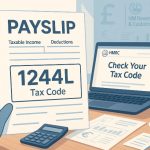
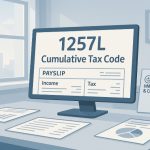

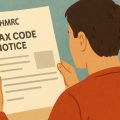






No Comments
Leave a comment Cancel